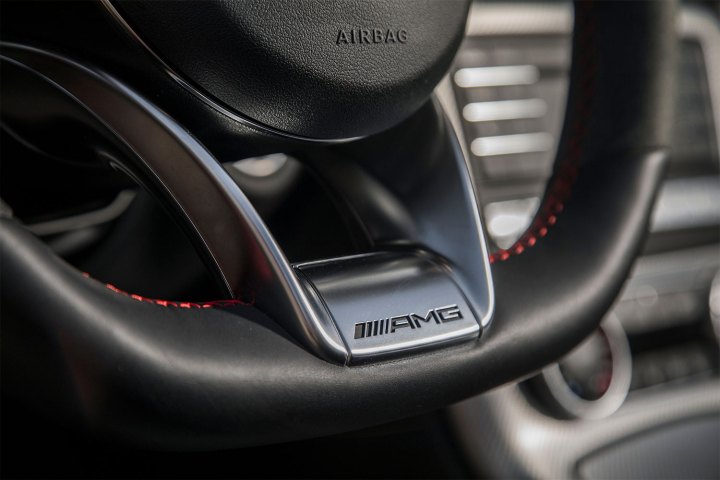
AMG boss Tobias Moers shed a little light on the Project One at the 2017 Geneva Motor Show and, like most supercars, there are some staggering figures attached to this one. But those figures correspond not to horsepower or top speed, but maintenance requirements. This supercar will have an F1-inspired powertrain all right, and it will apparently be just as finicky as an F1 car.
Moers confirmed that the Project One will use a modified version of the 1.6-liter turbocharged V6 used in the Mercedes W07 F1 car. The engine will be capable of revving to 11,000 rpm, but will also require major servicing after just 31,000 miles, Motor 1 reports. Considering that the average modern car can cover nearly 100,000 miles with little more than oil changes, that’s a bit of a drawback.
Granted, F1 engines are built purely for performance, not longevity. So heavy maintenance requirements are part of the risk one takes when buying a road car equipped with one. Given the Project One’s rumored price tag of $2.5 million to $4.5 million, anyone who can afford it can likely afford regular engine rebuilds too. Buyers may not even rack up mileage fast enough for the 31,000-mile limit to be an inconvenience.
One Percenters may also think it’s worth the trouble to have one of the most dominant engines in recent F1 history under the hood. Since F1 adopted its current hybrid format in 2014, Mercedes has been virtually unchallenged. Last year, it won 19 of the 21 races, securing both the Drivers’ and Constructors’ championships for the third year in a row.
The Project One is expected to team that winning V6 with electric power. The gasoline engine will drive the rear wheels, while at least one electric will power the fronts, giving the car all-wheel drive. Production may be limited to 300 units. The car isn’t expected to start production until next year at least, so we’ll have to wait to confirm those details.
Editors' Recommendations
- 2025 Mercedes-Benz EQS sedan gets new face, bigger battery
- Mercedes-AMG EQE SUV first drive review: a better electric SUV
- Insta360 cameras take a speedy ride around Monaco’s F1 track
- Mercedes-AMG shifting gears with a variety of hybrids and EVs on their way
- Mercedes-Benz’s new ‘Hyperscreen’ dashboard is a dazzling 56-inch OLED panel


